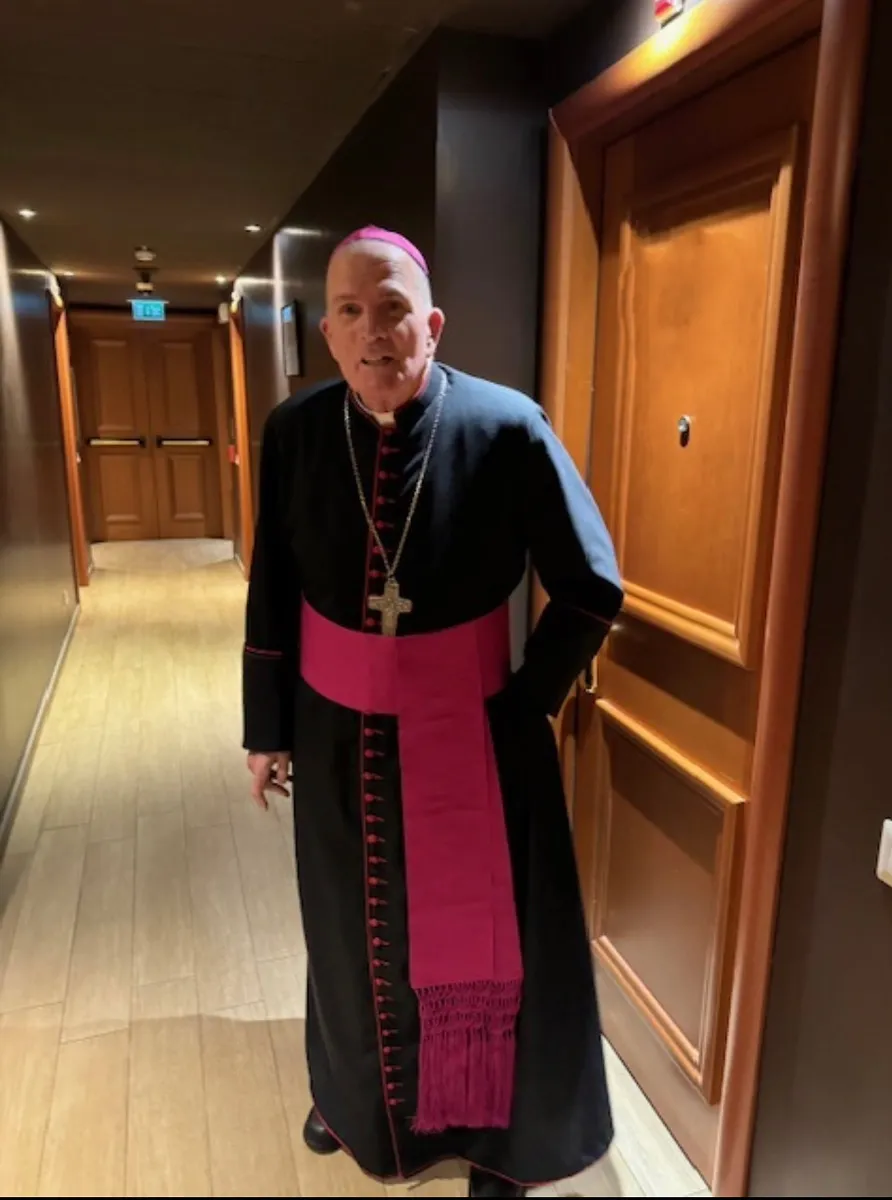
CNA Staff, Jan 9, 2024 / 17:40 pm (CNA).
Bishop David M. O’Connell of the Diocese of Trenton, New Jersey, was released from a hospital in Rome on Tuesday, five days after suffering a heart attack, a spokesman for the diocese said.
He was taken to Santo Spirito hospital last Thursday, where he had surgery to open the completely blocked left anterior descending artery, which is the largest cardiac artery in the body, according to the diocese. The type of heart attack the bishop sustained is known as a “widowmaker.”
O’Connell, 68, told other diocesan officials by email that he feels “very lucky” to have gotten medical care quickly after the heart attack, according to TrentonMonitor.com, the news website for the diocese, which consists of four counties in central New Jersey.

“He also gratefully acknowledged that he has received hundreds of get well wishes from throughout the diocese and the wider Church. He again thanked everyone for their support and prayers,” TrentonMonitor.com reported Tuesday.
O’Connell grew up not far from Philadelphia. He is a member of the Congregation of the Mission, which is more commonly known as the Vincentians, after its founder, St. Vincent de Paul.
He served as president of The Catholic University of America from 1998 to 2010. He has served as bishop of Trenton since 2010.
In December 2014, O’Connell had the lower part of his left leg amputated because of recurring infections caused by diabetes.
The bishop went to Italy recently to lead a pilgrimage of 20 priests and two lay diocesan staff members to holy sites in Rome and Assisi.
He plans to return to New Jersey later this week with the other pilgrims and there continue his recovery and rehabilitation.
If you value the news and views Catholic World Report provides, please consider donating to support our efforts. Your contribution will help us continue to make CWR available to all readers worldwide for free, without a subscription. Thank you for your generosity!
Click here for more information on donating to CWR. Click here to sign up for our newsletter.





Leave a Reply